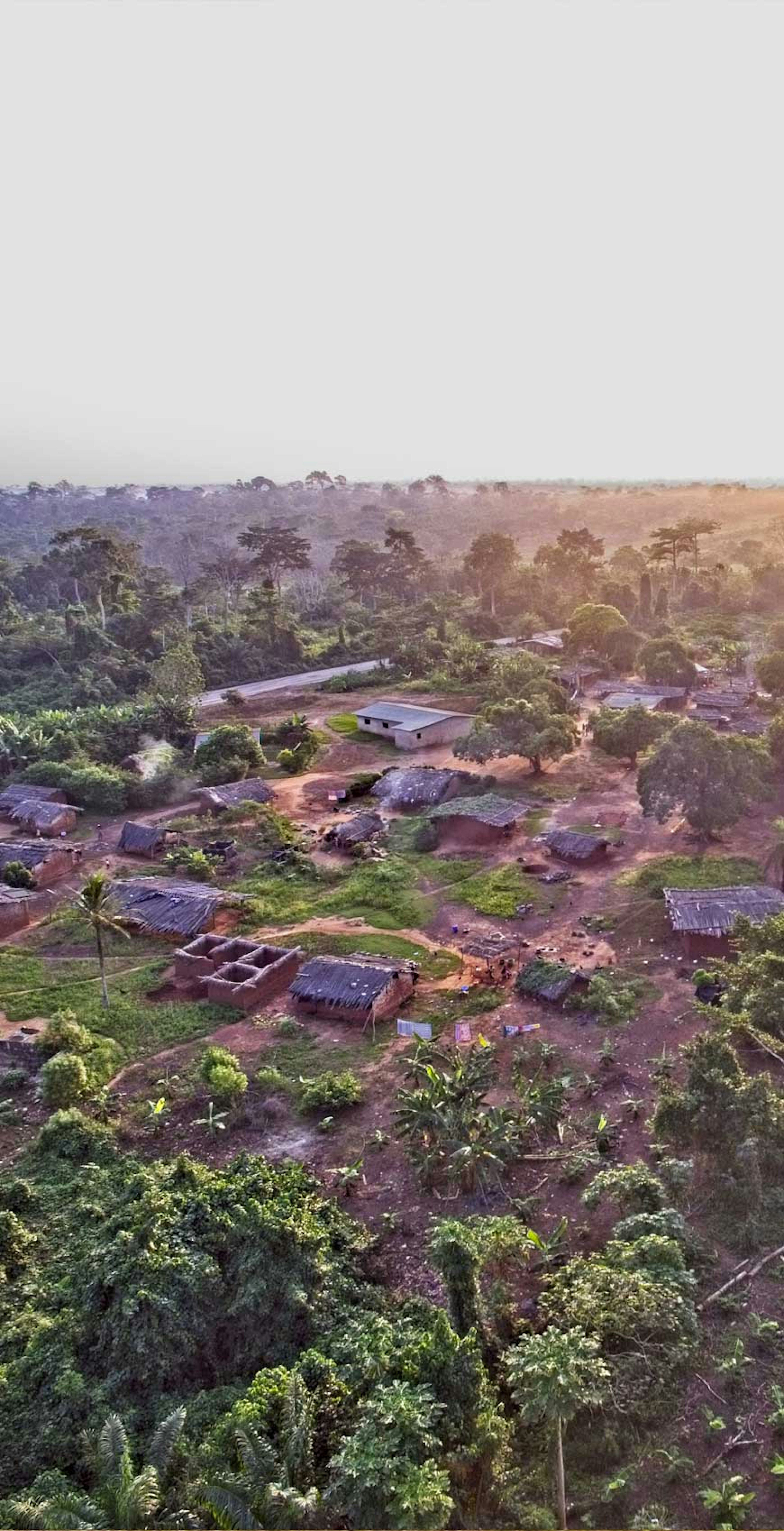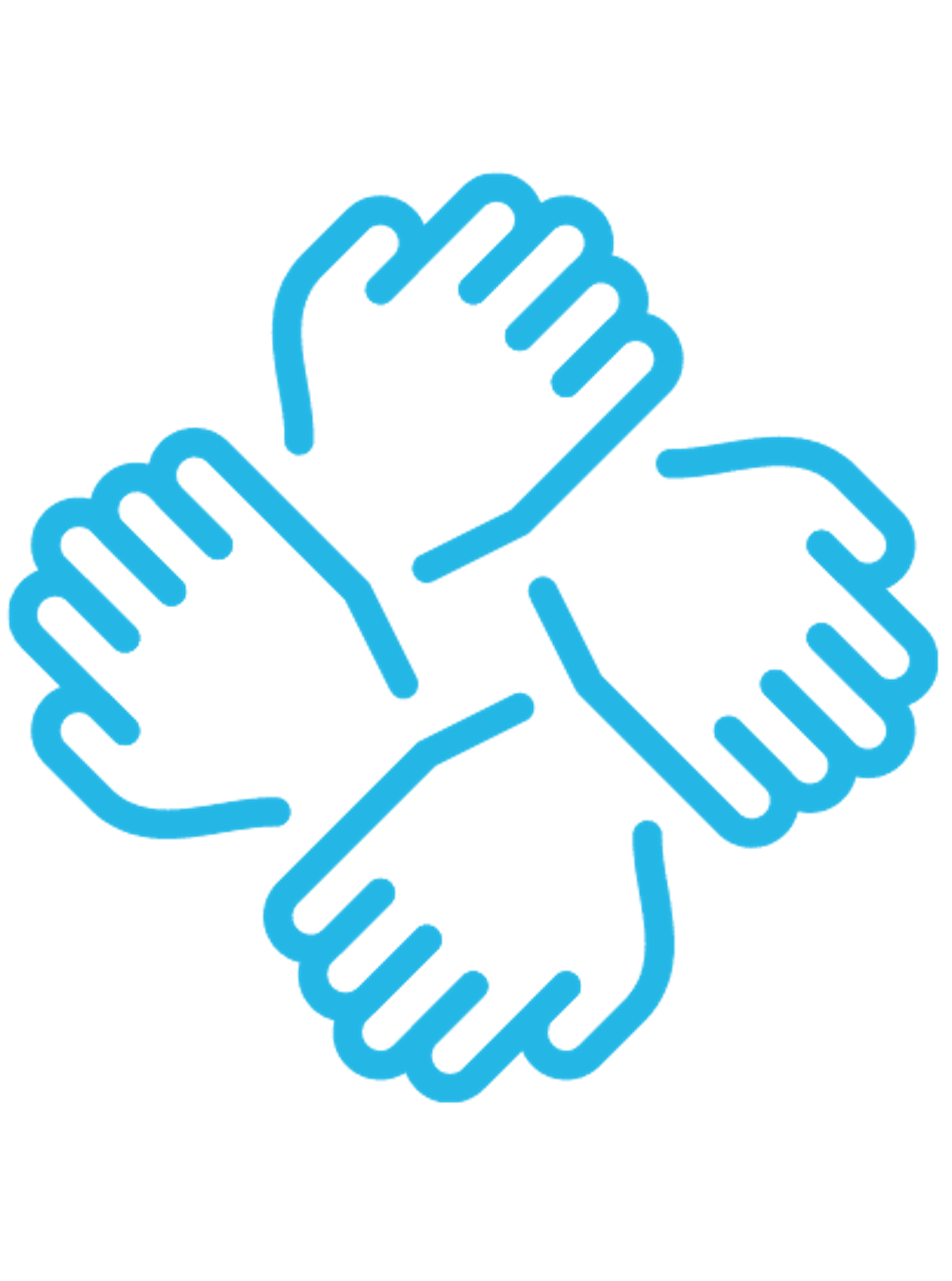Salient Issue
Forced Labour
An estimated 27.6 million adults and children work involuntarily under debt bondage, intimidation, threat of violence or deception. No sector, product, or country is immune to the risk of forced labour. There is a notable risk of forced labour in several fields of production where Fairtrade works, including cocoa, coffee, tea, sugar, fruits, vegetables, rice, nuts, cotton and gold.
Debt Bondage - In debt-bondage, a debt to the employer or a labour broker entraps people in a job. For example, on West African cocoa farms, many workers take high interest loans to cover the cost of recruitment, basic necessities, or work equipment that employers fail to provide. It is estimated that some 16,000 children and 13,500 adults are engaged in forced labour on cocoa fields in Ghana and Côte d'Ivoire.
The practice is also common in sugar cane across the world, textile manufacturing in Southeast Asia, fruits in Brazil. Among tea workers, forced labour has been identified in India, Sri Lanka, Kenya and Malawi.
Restriction of Movement - Employers or labour brokers may restrict movement by withholding wages or identification documents. In India for example, migrant sugar cane cutters and harvesters in Maharashtra are indebted by default, because labour intermediaries withhold part of their wages until the end of the season. Brazil nut collectors in Bolivia may face similar treatment.
Use of Labour Brokers – The use of labour brokers can often exacerbate labour problems. In coffee, forced labour incidents have been reported on plantations in Brazil, Guatemala and Mexico, where labour brokers deceive workers and retain their documents. This issue is also prevalent on fruit and vegetable plantations worldwide, gold mining in Peru, Ecuador, Colombia and Venezuela, and vineyards in South Africa and Italy.
Excessive Overtime – Overtime work can cross over into forced labour in the production of flowers, bananas, sports balls and vegetables. In bananas, intimidation of trade union members and exploitation of vulnerable migrant workers are also common. These are all listed as forced labour indicators by ILO.
Government Coercion – Though governments are generally charged with protecting workers, some coerce workers through rehabilitation or integration centres, detention, or prison labour. This practice has been documented in cotton in Turkmenistan, Tajikistan and with Uighurs in China, and previously in cashew processing by drug users in Vietnam.
The root causes of forced labour extend beyond poverty, discrimination, and limited literacy to include unfair purchasing practices that exert constant downward pressure on prices paid for raw commodities. Weak enforcement of labour laws heightens the risks of forced labour.

According to research
Fairtrade is contributing towards improved labour conditions and decent work.
Review of Research on Fairtrade from 2015-2020, 2022, page 19.

Action
Fairtrade's response
Fairtrade works in several products and regions where the risk of forced labour is high, such as cotton, gold and sugar cane. These areas are where our work is most needed. We work to tackle forced labour and its root causes, including poverty and discrimination.
We believe in inclusive farmer-led interventions and strive to support the capacity and continuous action by farmer organisations and plantations1 against the abuse of workers.
If forced labour is found, Fairtrade acts to protect2 the affected person(s), working with national agencies, NGOs and the producer organisation to enable remediation and the prevention of further cases. If forced labour is found via an audit, the independent Fairtrade auditor FLOCERT also agrees on corrective actions with the organisation and checks their implementation.
1: On this page, we use “plantations” to refer to organisations using hired labour.
2: Fairtrade’s Child Labour and Forced Labour Guidelines.
Fairtrade's response in detail
1: Preventive and mitigating measures
Fairtrade utilises a variety of tools to prevent and mitigate3 the risk of forced labour. One of the tools is the Fairtrade Standards, which include several requirements on forced labour:
-
Prohibition of forced labour. The Standards prohibit forced labour as defined by ILO conventions and the UN protocol to prevent trafficking4 .
-
Policy and procedures. If forced labour has been identified at a farmer organisation, the organisation must ensure the victim's prolonged safety and implement policies and procedures to prevent abusive work conditions. It also needs to explain these provisions to all workers. In addition, a monitoring system is recommended, if forced labour is endemic in the sector or region. As of 2023, over half (57 %) of the surveyed Fairtrade certified organisations in Latin America had a protection policy5.
-
Recruitment practices. If a plantation recruits actively from other regions or countries, it must pay recruitment and visa fees and travel costs for workers on short contracts. Temporary workers must be contracted directly.
-
Salary deductions. All salary deductions must have written consent from the employee or be in line with collective bargaining agreements. The amounts must reflect actual costs, and any rent deductions must be in line with local averages.
-
Overtime. Overtime is voluntary, not required on a regular basis, and does not extend to more than 12 hours per week and is not used regularly, exceeding periods of three consecutive months.
-
Corporal punishment. Corporal punishment, coercion or bullying are not tolerated.
- Risk assessment. The updated Fairtrade Standards for Hired Labour Organisations and Traders require conducting a HREDD risk assessment. This assessment should map the most salient issues for each organisation, including forced labour where relevant. Moreover, Fairtrade Standards include explicit requirements on most ILO6 indicators of Forced Labour.
Find the full set of forced labour requirements in the Fairtrade Standards at the bottom of this page.
Standards alone are insufficient to address the illicit and often hidden practice of forced labour. Fairtrade also promotes work in the following areas:
-
Comprehensive programmes support producers to develop and implement action plans that reduce and mitigate labour rights risks. For example, Fairtrade’s West Africa Cocoa Programme (WACP) provides training, coaching and advice for cocoa farmer cooperatives in Ghana and Côte d’Ivoire. Monitoring data indicates that participating cooperatives and farmers have greater awareness and policies on social issues, such as forced labour, than peer organisations.7 In 2023, Fairtrade launched a new child labour and forced labour prevention and remediation programme for the Ivorian and Ghanaian cocoa cooperatives that provides resources for SPOs for prevention and remediation activities. For information on current projects, please see Fairtrade Impact Map.
-
Training on forced labour, human trafficking, decent work and workers’ rights are continuously offered to workers, farmer organisations and plantations. We often find that exploitative working conditions have become normalised and are not easily recognised. The risk of forced labour must first be considered and made visible to all involved people. Fairtrade Producer Networks organise trainings and workshops every year, with no fees for the participating people or organisations. In 2022, hired labour organisations spent 8 % of the Fairtrade Premium on training and empowerment of workers.
-
The Fairtrade Premium allows farmer organisations and plantations to tackle some root causes of forced labour through investments in good labour practices and projects that raise farmer incomes and bring direct benefits to disadvantaged groups. For example, in 2022, 64 % of the Premium for hired labour organisations was spent on social investment, such as education and health for the workers and their families, while 15 % was allocated to their financial benefits. Find an overview of the use of Fairtrade Premium here.
-
Collaboration among supply chain actors. Fairtrade aims to connect companies (retailers, brands and traders) with producers to facilitate investments that address forced labour in the communities from which they source. The best practice section of the Fairtrade Trader Standard encourages this.
-
Awareness-raising and advocacy work in consumer countries. Fairtrade elevates the voices of farmers and workers, promotes fairer trading conditions, and raises awareness among consumers and politicians about the structural challenges faced by producers.
-
At the export, import and manufacturing stages, Fairtrade’s interventions against forced labour are laid out in the Fairtrade Trader Standard. This Standard requires companies to be aware of national labour laws and fundamental ILO Conventions, including those on forced labour, and to show no evidence of violations. This applies in Fairtrade certified supply chains regardless of whether the local country has ratified these ILO Conventions or not. Compliance with these requirements is checked in audits if there are any prior indications of non-compliance8.
In addition, traders must comply with Fairtrade’s pricing and Premium requirements, which support farmer organisations and plantations to invest in socio-economic development of the communities they serve and their workers.
3: Mitigating measures reduce the likelihood of an adverse impact (UNGP Interpretive Guide, p. 12).
4: Forced labour includes work or service exacted from a person under debt bondage, threat or penalty, forced recruitment, misuse of public and prison works, abduction and slavery, and human trafficking for labour or sex purposes.
5: Latin American and Caribbean Network of Small Producer Organisations surveyed a sample of 216 farmer organisations and plantations, of which 126 had a protection policy.
6: Boating Michael, Alicia Torné and Amish Chhagan, Afriqinsights, 2021, Evaluation of Fairtrade’s West Africa Cocoa Programme, p. 3.
7: Fairtrade America, 2021, Banana Impact Report 2020.
8: Indications can be obtained e.g. via allegations made by third parties or via observations during trader audits.
2: Remediating measures
Despite our tools and effort, cases of forced labour can and do also occur in Fairtrade certified supply chains. Forced labour is rooted in poverty, inequality and exploitation, which need to be addressed collaboratively by companies, governments, civil society and citizens. No single actor or organisation can solve forced labour on its own.
When forced labour is identified or alleged in Fairtrade certified supply chains, Fairtrade acts to protect the victim(s) and support the certified organisation in remediation9 work.
Fairtrade International and all three Fairtrade Producer Networks in Africa, Asia and Latin America have Protection Policies and Protection Committees, which guide our response when a case of forced labour is identified or alleged in the production or processing of certified commodities. The Protection Committees oversee the management of each case, supporting the affected persons and the producer organisation. These regional structures include human rights experts with an in-depth understanding of local realities.
We support the producer organisation in contacting national agencies and NGOs, in an effort to enable safe remediation. Furthermore, we support the organisation to strengthen its own policies and processes, monitor the prolonged safety of the victim, and take measures to prevent further cases of forced labour.
If FLOCERT, the Fairtrade auditing body, identifies forced labour during an audit, it requires corrective measures. These typically include remediation measures, a forced labour policy, and an action plan or project to prevent further cases. If the corrective measures are not fulfilled, the organisation is decertified, but the protection work continues, so that Fairtrade complies with its duty of care10.
However, Fairtrade cannot guarantee that each forced labour case is fully remediated. Full remediation includes rehabilitation and compensation for the victim. This requires contributions from all the duty bearers, including local public authorities and each of the causing/contributing companies.
Fairtrade also supports farmer organisations in setting up ongoing systems to monitor and remediate human rights violations. Among these, Fairtrade’s ‘Youth Inclusive Community Based Monitoring and Remediation’ (YICBMR) programme has been implemented and had positive results in 18 countries, involving various commodities, such as cocoa, coffee, sugar, tea, flowers, and gold11.
In addition, Fairtrade invests in other tailored programs to strengthen remediation of forced labour cases. In Brazil, Fairtrade facilitated a programme for orange producers to develop a system that helps them identify cases of forced labour and establish remediation measures. This project strengthened the knowledge and capacity of producers to respond to hiring and work practices that have been deemed unacceptable, including work in conditions analogous to slavery. Find out more about Fairtrade’s project on Fairtrade Impact Map.
Fairtrade has a global level grievance mechanism – the allegations mechanism housed at FLOCERT – which is under reform to strengthen its alignment with the UN Guiding Principles on Business and Human Rights.
In addition, Fairtrade certified plantations are required to have a grievance mechanism in place. Grievance mechanisms are not yet required of farmer cooperatives, but these organisations do need to address and document any human rights and environmental complaints related to Fairtrade Standards.
9: Remediation refers to the process of counteracting or fixing a human rights violation through measures that can include apologies, restitution, rehabilitation, financial or non-financial compensation, and punitive sanctions, as well as preventing the repetition or further cases of harm (UNGP Interpretive Guide, p. 12).
10: Details on the certification process can be found on FLOCERT’s website.
11: Erb & Associates, 2021, Comparative Assessment of Monitoring and Remediation Systems of Child Labour as implemented by Fairtrade Small-scale Producer Organisations.

According to research
Farmer cooperatives in West Africa find that Fairtrade support has raised their awareness and competence in addressing social risks, such as forced labour
Evaluation of Fairtrade’s West Africa Cocoa Programme, 2021, page 26.